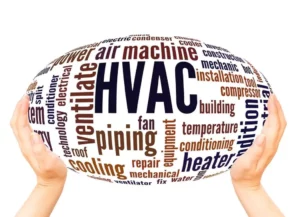Even if your cleaning firm is as small as one employee, a basket of detergents, and just a few customers, you still need to understand your earnings to budget and pay taxes correctly, let alone large companies. Suppose you have implemented elementary bookkeeping for your cleaning business and regularly enter primary data. In this case, you will understand how things are going in your firm and can prevent trouble with the authorized institutions. This blog will share the primary recommendations to assist your maid service in staying afloat.
Why Does Bookkeeping Matter in the Cleaning Field?
Accounting forms the fundamental basis for the financial management of the cleaning organization. Keeping comprehensive and exact records of all your gains, spending, and financial transactions gives you a transparent picture of the business’s financial position. Let’s look at the main reasons why accounting is an integral component of your maid services:
- Financial clarity: bookkeeping for cleaning businesses provides insight into cash flows, gains, and losses. Understanding these financial aspects lets you make rational decisions and identify sectors that can be improved.
- Tax compliance: accurate bookkeeping ensures you accurately report revenue and expenditures, making tax preparation more accessible and decreasing the risk of audit fines.
- Business development: by studying your financial papers, you can find out the most cost-effective services, opportunities to reduce spending, and growth potential, which will assist you in formulating future strategy.
Today, the cleaning service industry continues to grow, attracting many self-starters. That is why, as a business owner, you should thoroughly plan your development strategy to succeed in such a competitive environment.
How to Do Accounting for Your Cleaning Firm?
The first phase of developing any cleaning company is selecting its structure. Most business owners begin as sole proprietors because it is the simplest model. If you plan to divide commercial capital and individual savings, consider registering an LLC. Whichever option you select, you need to organize your funds correctly. Below, we will look at the most critical procedures.
Selecting an accounting method
The bookkeeping method affects how you record and report the transactions for your business. Let’s explore the options:
- Cash method: with the cash algorithm, you record transactions when money physically enters or leaves your account. This system is suitable if you launch small firms with simple processes.
- Accrual accounting: with this approach, transactions are recorded as they occur, regardless of when cash enters or leaves the account. Since this approach provides more accurate and full financial pictures, it is an optimal solution for the large maid service.
Consider consulting with an accountant when determining the appropriate method, based on business size, revenues, and future expansion plans.
Income control
Creating a reliable structure to control cash flow is essential to handling your gains accurately. Let’s look at the main steps that need to be completed:
- Issue invoices to customers for specified services. Ensure each document contains the required information, including service name, date, address, amount, and payment terms.
- Perform payment reconciliations: check your bank data against your recorded earnings to guarantee all transactions are accounted for.
Monitor your financial parameters regularly to comprehend your organization’s performance. By analyzing revenue, you can spot trends, assess profitability, and make decisions about firm growth.
Computing COGS
Cost of goods sold (COGS) is the total cost the company incurred in relation to the commodities created, or purchased, and sold. A firm’s sales gains minus COGS equal the organization’s gross revenue. COGS is classified as an expenditure and can be found on the Profit and Loss report.
Computing COGS is vital because it lets you define how much it costs to clean up the home. Based on this data, you can establish fair prices, make recruiting decisions, estimate whether to expand the list of services, and define earnings.
Basic Aspects of Dealing with Taxes in the Cleaning Area
As a business owner, you must pay taxes regularly throughout the year instead of waiting to pay a big tax bill when you get a tax authority notice. A continuous monitoring of your required payments once every three months lets you sleep soundly, realizing you have covered your tax duties, and will let you prevent any unpleasant surprises in the last weeks of the year. The categories of contributions that a cleaning firm must pay depend on the region; below, you can see at the most famous duties:
- Income tax: it is levied on taxable business profits, calculated by subtracting eligible business expenses from total income, and reported on income tax return based on your company structure (sole proprietorship, LLC, C corporation or S corporation).
- Self-employment tax: it is a mandatory tax that individuals who work for themselves must pay to cover their Social Security and Medicare contributions.
- Employment taxes: if you have workers, according to the IRS rules, you have to pay certain taxes, including Social Security and Medicare taxes, withholding federal income tax, and contributing to Federal Unemployment (FUTA) tax.
Cleaning firms can utilize tax breaks to decrease their liabilities when computing duties. Let’s look at the main deductions you can take into account:
- Commercial spending: expenditures related to supplies, equipment, insurance, marketing campaigns, licenses, etc.
- Home Office subtraction: if you handle organization from a separate room in your flat, you can subtract the spending portion, e.g., rent, utilities, and internet.
- Mileage subtraction: your automobile’s mileage and transportation expenditures are linked with business trips, visiting clients, and purchasing commodities.
- Personnel expenditures: subtract wages and taxes for your workers and contractors.
Collaborating with a financial expert is vital to ensure you stay within the legal guidelines and make the most of deduction options.
Payroll Rules in Cleaning Firms
Managing payroll and staffing costs is essential for a cleaning service. Let’s look at the primary considerations when calculating employee benefits:
- Precise classification of employees: it is vital to comprehend whether your workers are employees or freelancers based on legal standards. This classification affects the computing of taxes on wages and the possibility of using benefits.
- Accurate time tracking: we recommend utilizing the most advanced software to comprehend precisely how many hours each specialist worked.
- Payroll processing: ensure accurate and timely payroll processing, including payroll, tax, and deduction calculations. We recommend automating these processes to speed them up and decrease errors.
You should be aware of all benefits you can offer employees in this industry, including health insurance, pensions, and paid vacation. Such benefits not only increase employee satisfaction but also provide possible tax deductions.
Some Advice on How to Do Your Bookkeeping in the Cleaning Firm
No business may achieve prosperity without constantly monitoring finances, but many businessmen are not ready to continually keep records and monitor their finances. We’ve put together a few recommendations to assist you in getting your books in order and fulfilling your obligations to authorities and customers:
- Save copies of your receipts: no matter the amounts, whether it’s $10 in paper towels or $150 in detergents, monitor your invoices. All payments you made to suppliers during the year is considered to be commercial spending and provides a basis for tax deductions.
- Reinvest in your firm: find capital to buy modern machines or car maintenance without impacting your cash flow so much that you can’t pay the bills.
- Divide individual and business accounts: as your business evolves, a transparent distinction between individual and commercial funds becomes increasingly crucial in dealing with mandatory payments. If you don’t have a separate business account and credit card, create one instantly.
Are you constantly overspending on certain activities? If you don’t monitor your expenditures, you most likely won’t be able to react on time and cut your spending in the future. Introducing a reliable bookkeeping structure with expenditure classification lets you make rational decisions.
Main Problems with Accounting in Cleaning Firms
As guardians of cleanliness, you must understand the importance of paying close attention to detail. Likewise, a mistake may ruin all your financial efforts. Let’s talk about the most common business accounting problems faced by firms in the cleaning field:
- Records clutter: without organized storage, you risk losing important documents, including receipts, invoices, etc. This disorder makes it difficult to control the inflow and outflow of cash.
- Incorrect earnings tracking: ensuring all payments are accurately recorded requires diligence. Ignoring even one source of revenue may result in your financial statement being incorrect, compromising the proper reporting of your tax contributions.
- Troubles with cost classification: think of the full range of expenditures, each with its own purpose and meaning. Without correct categorization, your financial papers will be incomplete. The exact division of costs, materials, machines, or wages is critical to ensuring precise economic reports.
Don’t forget about the dangers of manual data entry. Any inaccuracies in reporting figures or operations may affect your firm’s financial performance, causing inaccuracies that undermine the integrity of your records. Therefore, we recommend using a particular accounting application.
Is It Essential to Recruit a Bookkeeper to Refine Your Maid Services?
If you open a cleaning company, be ready to handle many activities, from operating procedures and managing personnel to collaborating with customers. One of the most complex activities for cleaning businesses is bookkeeping. Is it worth doing it independently, or is it better to entrust it to experts? Let’s estimate the strengths and weaknesses of each option.
Let’s consider the main benefits of hiring a professional:
- Practice and knowledge: experts are well-versed in accounting principles, tax directives, and digital products, guaranteeing the correctness of reporting.
- Time-saving: recruiting enables you to delegate time-consuming tasks to a professional. It allows you to concentrate on other aspects of your cleaning firm.
- Compliance and accuracy: the bookkeeper may ensure that your financial papers comply with current rules. Their care for details minimizes the risk of reporting errors.
If we speak about the disadvantages of this option, it requires additional costs and involves some loss of control over your economic documents.
Next, let’s analyze the benefits of independent accounting for the cleaning business:
- Money savings: you don’t have to pay bookkeeper fees, which is especially beneficial for small companies.
- Immediate access to financial information: This can be helpful when making urgent decisions or responding to requests from clients or partners.
When discussing the downsides, remember that doing your bookkeeping for a cleaning business takes many working hours and effort. In addition, a lack of practice in the accounting sector increases the risk of errors in your financial documents.
Final Words
In a competitive cleaning area, accounting is not just a routine activity; it is a critical instrument to guarantee the prosperity of your enterprise. Correct bookkeeping gives you the knowledge to make rational decisions and promote your brand.
If you need to refine accounting or payroll in your cleaning firm, contact BooksTime. We’re here to assist energetic small and medium-sized business owners in maximizing earnings and finding opportunities to decrease expenditures. To determine if we may assist your organization, fill out the form on the website with your name and phone number, and our outsourced accountant will provide you with a free consultation.



















